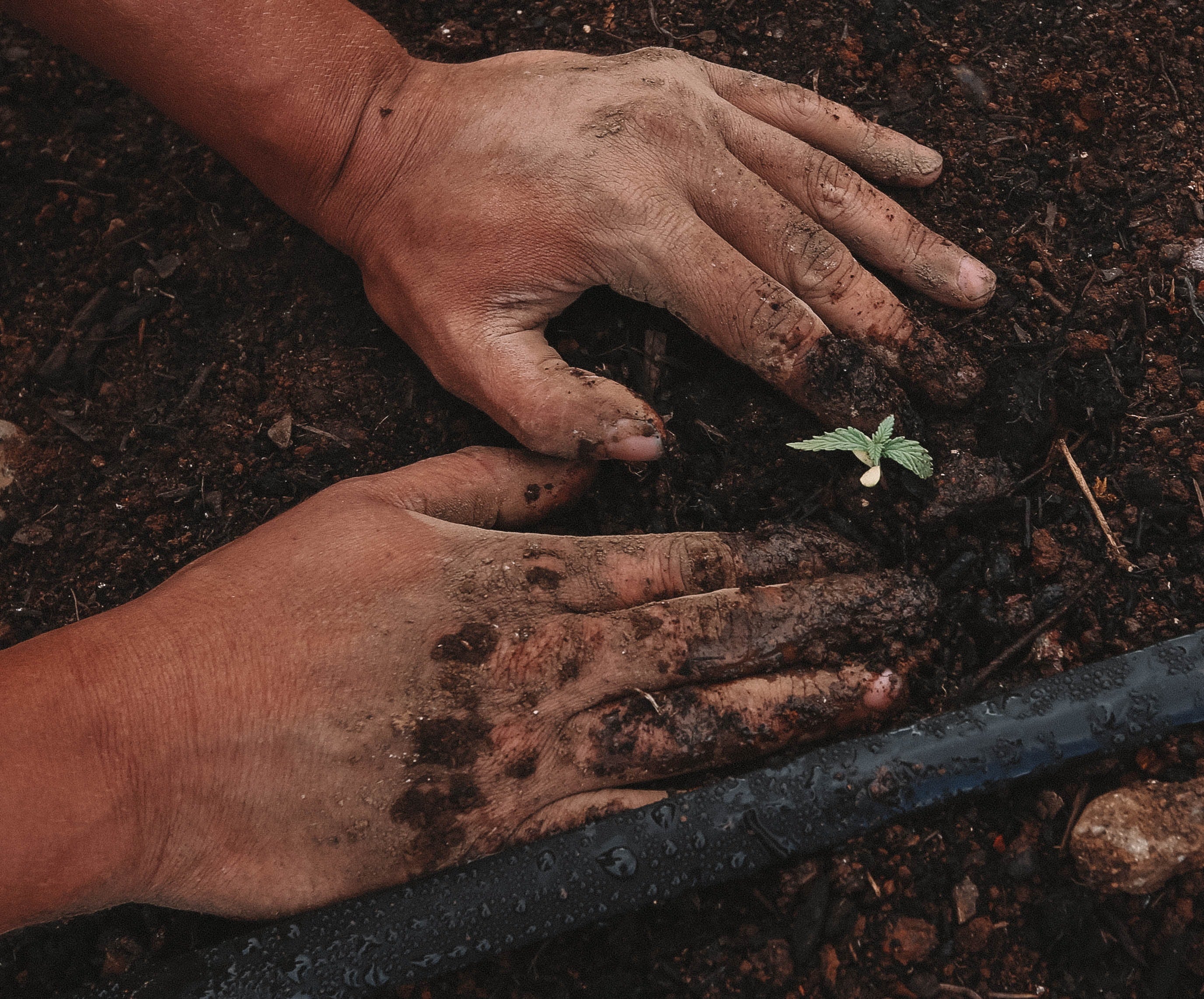

In an ever-changing world, ensuring food security is crucial. With rising food prices and potential crises, being prepared can make all the difference. In this article, we’ll explore practical solutions to enhance your food security and help you weather any storm.
1. Start with a Survival Garden
Why Survival Gardening Matters
A survival garden isn’t just about growing tomatoes and basil—it’s about self-reliance. When grocery store shelves run empty, your garden becomes your lifeline, ensuring food security in uncertain times. Here’s how to get started:
- Choose the Right Plants : Opt for high-yield, nutrient-dense crops like potatoes, beans, and kale. These will sustain you during tough times.
- Learn Seed Saving : Save seeds from your harvest to ensure a continuous supply..
- Companion Planting : Pair compatible plants to maximize space and deter pests, thereby securing a robust yield.
- Vertical Gardening : Use trellises and containers to grow more in less space, making the most of your area.
2. Emergency Food Storage Hacks
Building Your Pantry
Enhancing food security starts with a well-stocked pantry. Here's how to ensure your pantry supports your food security:
- Stockpile Staples : Rice, beans, canned goods, and pasta.
- Rotate Regularly : Use the “first in, first out” rule to prevent food spoilage.
- Invest in Mylar Bags : These protect against pests and extend shelf life.
- Preserve Fresh Produce : Learn canning, dehydrating, and fermenting techniques to keep your pantry stocked.
3. Urban Homesteading and Micro-Farming
City Dwellers Can Be Self-Sufficient Too
Urban homesteading is a great way to ensure food security even in the city. Here’s how you can start:
- Container Gardening : Grow herbs, tomatoes, and peppers on balconies.
- Raise Backyard Chickens : Fresh eggs and pest control in one package.
- Aquaponics Systems : Combine fish farming with hydroponic gardening to maximize space.
- Community Gardens : Join local initiatives to share knowledge and resources.

4. Drought-Resistant Crops and Water Management
Thriving When Water Is Scarce
Efficient water management is essential for food security, especially during droughts. Here are some strategies:
- Xeriscaping : Landscaping with drought-tolerant plants conserves water helps food security.
- Mulching : Cover soil to retain moisture and suppress weeds, enhancing your garden's yield.
- Rain Barrels : Collect rainwater for irrigation which boosts your food security.
- Smart Irrigation Systems : Use sensors to optimize water usage and ensure food security through efficient resource management.
5. Heirloom Seeds vs. Hybrid Seeds
Choosing Wisely for Long-Term Sustainability
Choosing the right seeds is pivotal for food security. Here’s how to make an informed choice:
- Heirloom Seeds : These open-pollinated varieties produce seeds you can save, a crucial aspect of food security.
- Hybrid Seeds : While high-yielding, they don’t reliably reproduce.
- Balance Both : Mix heirlooms for seed saving and hybrids for immediate yield to maintain food security.
6. Pandemic-Proof Your Pantry
Essential Foods to Stock Up On
Stocking up on the right foods is vital for ensuring food security during pandemics. Here are must-haves:
- Grains : Rice, quinoa, oats, and whole wheat flour are staples that support food security.
- Canned Proteins : Tuna, beans, and chicken are essential for protein intake and food security.
- Healthy Fats : Olive oil, nuts, and seeds are crucial for a balanced diet and food security.
- Spices and Flavorings : Salt, pepper, and dried herbs keep meals enjoyable and enhance food security.

The Growing Food Crisis in America
The United States is facing a growing food crisis, impacting millions of households. Let’s delve into the current situation and explore a solution that empowers individuals to take control of their food security.
Food Insecurity Statistics
- As of October 2023, one out of every eight American adults struggles to afford enough food 1 . Nearly 28 million adults nationwide— 12.5% of the adult population —live in homes where there is sometimes or often not enough to eat in the last week.
- The rate of adults living in such conditions has consistently risen from 7.8% in August 2021 to the current 12.5% 1 . Many face hunger due to economic challenges, unemployment, and rising food prices.
Government Support and SNAP
- The Department of Agriculture provides nutritional support through programs like the Supplemental Nutrition Assistance Program (SNAP) . SNAP participation increased from 37.1 million in January 2020 to 41.4 million in October 2023.
- However, additional SNAP funding provided during the pandemic ended in March 2023, affecting the average monthly benefit received by enrollees 1 .
The Solution: Create Your Own Survival Garden
What Is a Survival Garden?
A survival garden is more than just a hobby—it’s a strategic approach to food security. By growing your own crops, you can supplement your diet, save costs, and prepare for tough times. Here’s how to get started:
- Start Small : Don’t feel overwhelmed. Begin with a few essential crops.
- Choose the Right Location : Optimize sunlight, soil quality, and space.
- High-Calorie and Storage Crops : Focus on crops that provide sustenance and can be stored.
- Incorporate Perennials : Include perennial plants like asparagus, rhubarb, earth chestnut, and strawberries.
- Indoor Gardening : Explore growing food indoors, even in small spaces.
- Composting : Start composting now to enrich your soil.
- Vertical Gardening : Maximize space by planting vertically.
- Seed Saving : Save seeds from your harvest for future planting.
Introducing the Seed Armory Basics Kit: Your Ultimate Survival Seed Vault!
Are you ready to take control of your food security? Look no further than the Seed Armory Basics Kit —a game-changer for gardeners, preppers, and anyone seeking self-sufficiency. Let’s dive into why this seed vault deserves a spot in your survival arsenal:
1. 100% Non-GMO, 100% Heirloom Survival Seeds
- Our Basics Kit contains a curated selection of 49 open-pollinated, heirloom, and non-GMO seed varieties . These seeds are the real deal—no sterile hybrids here! You’ll be growing plants that have stood the test of time, generation after generation.
2. Grow an Emergency Vegetable Garden
- Imagine having fresh, nutrient-packed veggies at your fingertips, even during a crisis. With over 8000+ vegetable plant seeds , the Basics Kit covers all the essentials. From leafy greens to robust tomatoes, zucchini, and more, you’ll be well-prepared.
3. Sustainability and Self-Reliance
- Break free from the cycle of buying new seed envelopes every season. Plant heirloom seeds, nurture your garden, and harvest your own seeds for future planting. It’s a beautiful tradition that connects you to generations past and secures your family’s future.

Invest in Your Future and Food Security for Generations to Come
Food security isn’t just a buzzword—it’s a lifestyle. By implementing these strategies, you’ll be better equipped to face rising food prices and unexpected crises. Remember, preparation today ensures peace of mind tomorrow.






